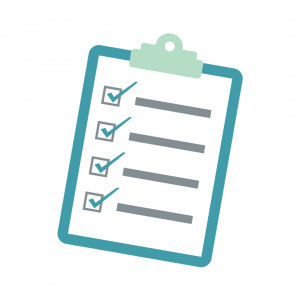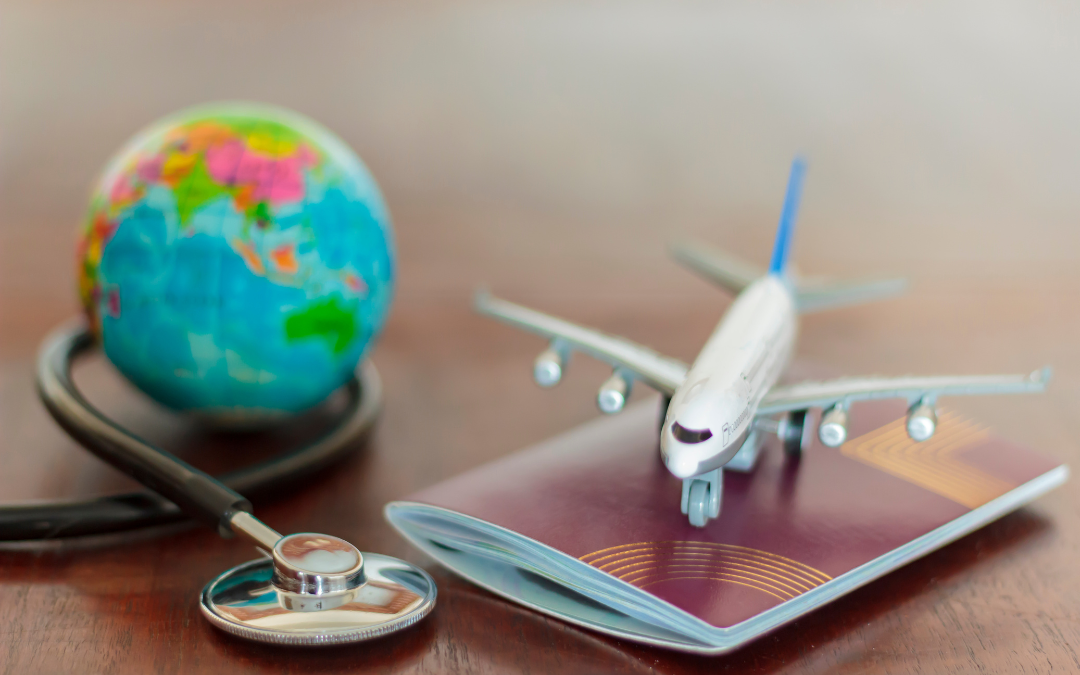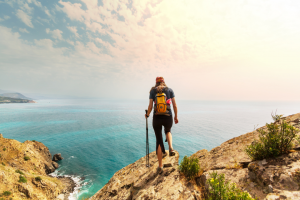Do you have plans to escape the cold this winter? New year means new adventures! Whether you’re planning a backpacking trip through Europe or a safari in Africa, it’s important to remember that travel can take a toll on your health. That’s why it’s essential to pack a few key items and do some pre-travel errands that will keep you healthy and happy on the road. Keep reading to see the top 10 items you should have on your travel checklist to ensure that your trip is safe and enjoyable. You can always visit our website for any questions relating to travel medicine!
1.Travel Health Kit
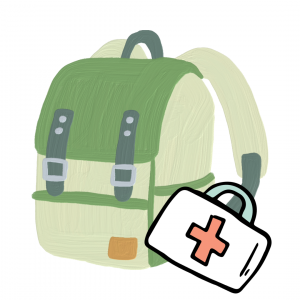
– Anti-diarrheal medication
– Anti-Motion Sickness
– Laxative
– Antacid
– Hand Sanitizer
– Aloe Gel (for sunburns)
– Insect Repellent
– Scissors
– Tape
– Water Purification Treatments
But what about specific travel destination requirements? Book an appointment with us and talk to a travel medicine specialist to see if there are any medications you should pack for your specific destination. Trust us, you’ll be grateful to have them on hand when you need them. Oh, and don’t forget those airport delays and lost luggage mishaps? Pack extra prescriptions to make sure you’re covered even if your medication is delayed or lost. It’s better to be safe than sorry when it comes to your health.
2. Packing the Right Medications
You’ve packed your travel health kit, but what about those specific medications for certain destinations? Once you have your prescription, don’t forget to pack it! It’s better to be prepared and have them on hand, rather than scrambling to find them in a foreign country.
Remember, delays and lost luggage happen. Also make sure to pack extra prescriptions to ensure you’re covered, even if your medication is delayed or lost. It’s a small extra step that could make a big difference in your health and well-being on your trip. When it comes to packing medication, make sure to follow airline regulations and pack them in your carry-on bag. And always make sure to bring the original prescription bottle with you to avoid any issues with customs.
Don’t let common travel ailments ruin your trip. Pack the right medications and be prepared for whatever comes your way.
3. Stay Hydrated
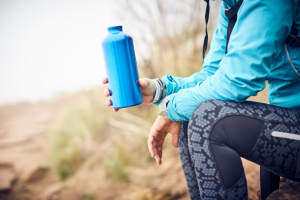
4. Sunscreen! Sunscreen! Sunscreen!
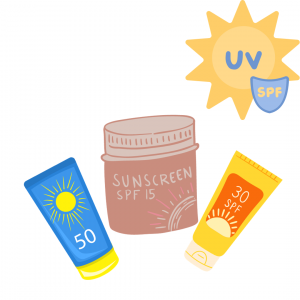
5. Pay Attention to What you Eat
One of the best things about travel is getting to try new foods and experience local cuisine. But, it’s important to keep your health in mind when it comes to what you eat. If you do decide to try street food, make sure it’s piping hot and freshly cooked. You should also pay attention to where you eat. Restaurants with high turnover are generally a safer bet than those with low traffic. Actively try to eat fruits that can be peeled, and ensure that any meat your order is thoroughly cooked. And if you’re in doubt, follow the locals. They know the best spots to eat and what to avoid. Another tip is to pack a small bottle of hand sanitizer to use before meals. This is especially important if you’re traveling in areas with poor sanitation. And, if you have any food allergies, make sure to bring a card with translations of your allergies in the local language to avoid any mishaps.
6. Get Vaccinated
Vaccinations are the highlight of travel medicine. The best way to be prepared for any travel ailments is to ensure you are vaccinated! Before you hit the road, it’s essential to make sure you’re up-to-date on any necessary vaccinations. Some countries require certain vaccinations before you can even enter, while others simply recommend them. Either way, it’s always better to err on the side of caution and get vaccinated before your trip. But what vaccinations do you need? That depends on your destination and your individual health history. Some common vaccinations for travelers include Hepatitis A and B, Typhoid, Yellow Fever, and Meningitis.
It’s important to note that some vaccinations require multiple doses or take time to become effective, so plan accordingly. Come visit our travel medicine clinic and book your appointment for your next trip!
7. Plan Ahead for Activities
Are you planning on hiking to Machu Picchu or scuba diving in the Great Barrier Reef? Exciting activities like these require some extra planning to ensure your health and safety. First, do your research. Look into the potential risks associated with your activity and make sure you’re physically prepared. If you have any pre-existing health conditions, talk to your doctor to see if there are any precautions you should take. Next, make sure you pack appropriate gear. Hiking boots with good ankle support can make all the difference on a rocky trail, while a wetsuit can keep you warm during a chilly dive. Don’t forget to pack sunscreen and insect repellent, too!
The most important thing is to avoid taking unnecessary risks, no matter how fun they might seem to be!
8. Acclimatize When Visiting High-Altitude Destinations
Are you planning a trip to a high-altitude destination like the Andes or the Himalayas? While these destinations offer breathtaking views and unforgettable experiences, they also come with a unique health risk: altitude sickness. Altitude sickness occurs when you can’t get enough oxygen from the air at high altitudes, and can kick in when you change from 2400m or more. Symptoms can range from mild headaches and nausea to more severe issues like difficulty breathing and confusion. To avoid altitude sickness, it’s important to acclimatize slowly by ensuring you climb mountains or hills gradually and sleep at lower altitudes when possible. During your first few days at high altitude, take it easy and avoid strenuous activities. Drink plenty of water to stay hydrated and avoid alcohol and caffeine, which can dehydrate you. You may also want to consider packing medication to help with altitude sickness symptoms, but make sure to talk to your doctor or a travel medicine specialist before doing so. You can learn more about it from TMVC here!
9. Travel Insurance
No one wants to think about the worst-case scenario when planning their dream trip, but it’s important to be prepared for anything. That’s where travel insurance comes in. Travel insurance can protect you financially in case of unexpected medical emergencies, trip cancellations, or lost luggage. Before purchasing travel insurance, make sure to read the fine print and understand what is and isn’t covered. You may need to purchase additional coverage for activities like adventure sports or high-risk destinations. And don’t forget to check if your credit card offers any travel insurance benefits. When it comes to medical coverage, make sure to choose a plan that covers emergency medical expenses and emergency evacuation. This is especially important if you’re traveling to a destination with limited medical facilities or transportation options.
In the unfortunate event that you do need to use your travel insurance, make sure to keep all documentation and receipts to make the claims process easier.
Travel insurance may not be the most exciting thing to think about when planning your trip, but it can offer peace of mind knowing that you’re covered in case of unexpected emergencies. So, don’t forget to add travel insurance to your travel checklist.
10. Be Cautious of Animals
Animals can be one of the most exciting parts of travel, but they can also pose a risk to your health if you’re not careful. Depending on your destination, you may encounter mosquitos carrying diseases like Zika or malaria, or stray dogs carrying rabies. To avoid mosquito bites, make sure to pack insect repellent and wear long sleeves and pants in areas with high mosquito activity. You may also want to consider using mosquito nets when sleeping. If you come into contact with a wild animal, make sure to keep a safe distance and avoid touching or feeding them. Even seemingly harmless animals can carry diseases or become aggressive if provoked. And don’t forget to properly dispose of any food waste to avoid attracting unwanted animal attention. By being cautious around animals, you can enjoy all the wonders of nature without any health risks. So, pack that insect repellent and get ready to embrace all the amazing wildlife on your travels!
Update Your Checklist!
